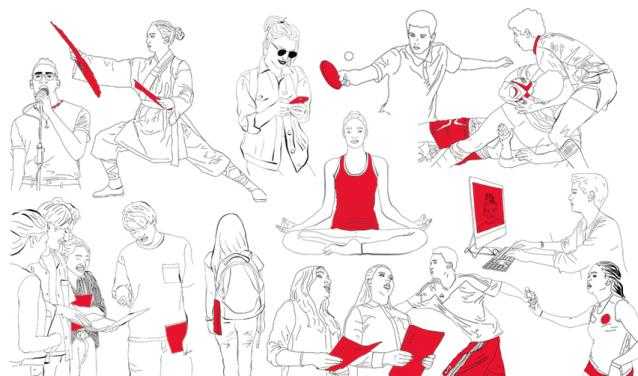Home>“An interlude of wellness in this difficult context”

15.04.2021
“An interlude of wellness in this difficult context”
To overcome the challenges of the health crisis, Sciences Po has developed new mechanisms to provide students with the best possible support. Sébastien Thubert, Director of Campus Life and Student Engagement, answered a few questions about these new initiatives.
Student life at Sciences Po is known for its permanent vitality. In 'normal' times, your role is to provide the best possible support for the countless projects and events organised by student associations. How does it work this semester?
Sébastien Thubert: Our approach has changed completely. Today, we have to guide the associations much more in order to organise a vibrant campus life, where usually effervescence is the norm. Experience shows that very short events work best: workshops where people can participate together, rather than big meetings. For students who already spend a lot of time online in their courses on Zoom, it is important to create moments of exchange, opportunities to meet and get together, and to "do together", even if it is online.
In your programme called "Ubique", you propose a list of resources for this "dual campus life" in which you insist on the importance of getting together, even online. Why is this so important and what do you propose in this context?
S.T.: In today’s context, it is important to set markers in the day to be able to organise oneself better. We are trying to give priority to live activities: our trainers offer yoga, tai chi, zumba sessions and more, in English and French, on a regular basis. We also try to encourage solidarity initiatives by identifying volunteer opportunities, notably with the governmental platform of the Réserve Civique and with Benenova, which are very successful with students. When you feel isolated, it can be very beneficial to be useful and get involved in your neighbourhood, your city, the surrounding villages ...
How do you identify and support the students who are struggling?
S.T.: Since the first lockdown, we have developed a system to identify and support students who are isolated at home. More concretely, we check in every week with the students who have reached out and agreed to be contacted. If this regular contact is not enough and we identify more serious difficulties, we can refer them, with their agreement, to the Health Centre or to Sciences Po's Student Welfare and Support services. We have also set up a student sponsorship programme called Ariane.
At the end of this new year of remote learning, how would you assess the use of the Ubique platform and its impact on the well-being of our students?
S.T.: Today, our dual campus life Ubique brings together nearly 1,400 students every week. One thousand of them come to practice physical or artistic activities in person, while the remaining four hundred take part in remote activities. We have done our utmost to ensure that everyone can enjoy a break in this difficult context, while still drastically respecting health regulations. We are also organizing our online activities so that our students who are forced to stay abroad during the pandemic can participate despite the time difference. The first feedback we have received is very encouraging, and we feel it is essential to offer all students the possibility of accessing an experience of campus life and some pressure relief in this period of adversity. We will continue our efforts in this direction and are already working with student associations to organize special events for all of us to get together as soon as possible.
Learn more: